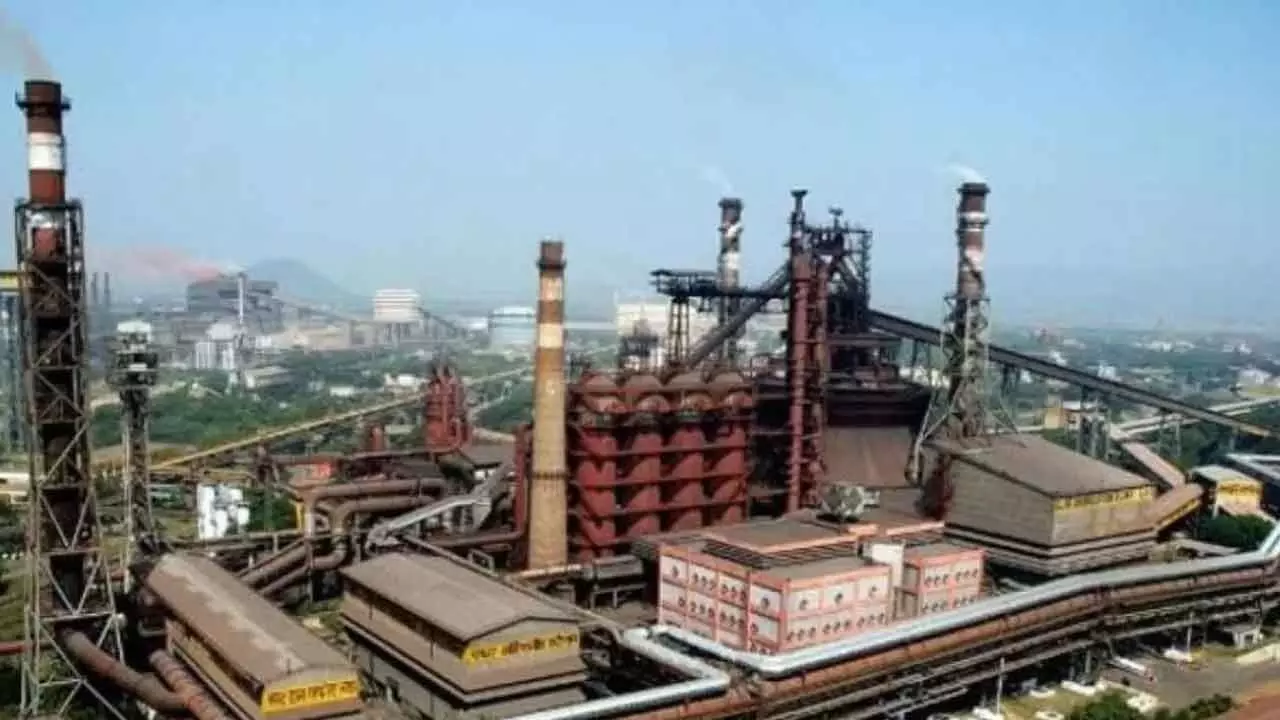Raw Material Scarcity Forces RINL To Scale Down Production
The steel plant shuts down Blast Furnace-3 due to coking coal shortage
Raw Material Scarcity Forces RINL To Scale Down Production

Visakhapatnam: Rashtriya Ispat Nigam Limited (RINL), the corporate entity of Visakhapatnam Steel Plant, blew down Blast Furnace-3 on Thursday following severe shortage of coking coal. Out of three blast furnaces (BF), now RINL, the corporate entity of VSP which is struggling for survival due to raw material insecurity and working capital crunch, will operate with only one blast furnace raising concern among the trade unions at a time when they have been demanding optimization of production for achieving a turnaround.
However, the company, sources told Bizz Buzz, as a last resort the third blast furnace was shut down following all the safety protocols in the larger interest. The reason pointed out was the fast depleting buffer stock of coking coal. Incidentally, RINL is the only major steel producer deprived of captive mines forcing it to shell down a heavy amount on sourcing the raw material. While it has a long-term agreement to source a lion’s share of its iron ore from NMDC from its Bailadilla mines in Chhattisgarh through ferring rakes on Kirandul-Kothavalasa Railway Line, coking coal is being met with heavy imports from Indonesia, Australia and Africa.
The supply was hit for nearly two months due to a lighting strike by the workers of Adani Gangavaram Port Ltd (AGPL), from where it has a conveyor belt for evacuation to its plant directly and subsequently due to court orders due to dues outstanding to some of the supplies.
As part of alternate strategies, the steel plant signed MoU with Tata International Ltd to get Letter of Credit to get raw material and signed another MoU to revive one of the shutdown BF with Jindal Steel & Power Ltd (JSPL). Now, talks are in progress to get some amount from NMDC in exchange of land to be leased for establishing a pellet plant in the surplus lands of Visakhapatnam Steel Plant. VSP has a capacity for production of 7.3 million tonnes per annum. The capacity was expanded from three million tonnes to 7.3 million tonnes in two phases with a total investment of about Rs 16,300 crore. “Under the present circumstances shutting down of BF-3 was a wise decision from a safety point of view. Once the stock position improves, it can be revived,” a former senior executive of RINL, said.
Allotment of captive mines is a long-term demand to bail out RINL from its present mess. “We have been demanding captive mines but successive governments have been ignoring our genuine demand,” AITUC national vice-president D Adinarayana, said.
He wondered whether the management or the government have any strategy to run the plant on profitable lines or kill it slowly to fasten the process for its privatisation as per the decision taken by the Cabinet Committee on Economic Affairs (CCEA) in January, 2021.
The employees feel that allotment of captive iron ore and coal mines, grant of working capital to meet its immediate requirement and steps to ensure optimum capacity utilisation will help improve the finances to a large extent.
There has been demand to give an order from the Andhra Pradesh government to RINL to consume steel produced by it for construction of the capital city at Amaravati and for the pending works of multi- purpose Polavaram project.

